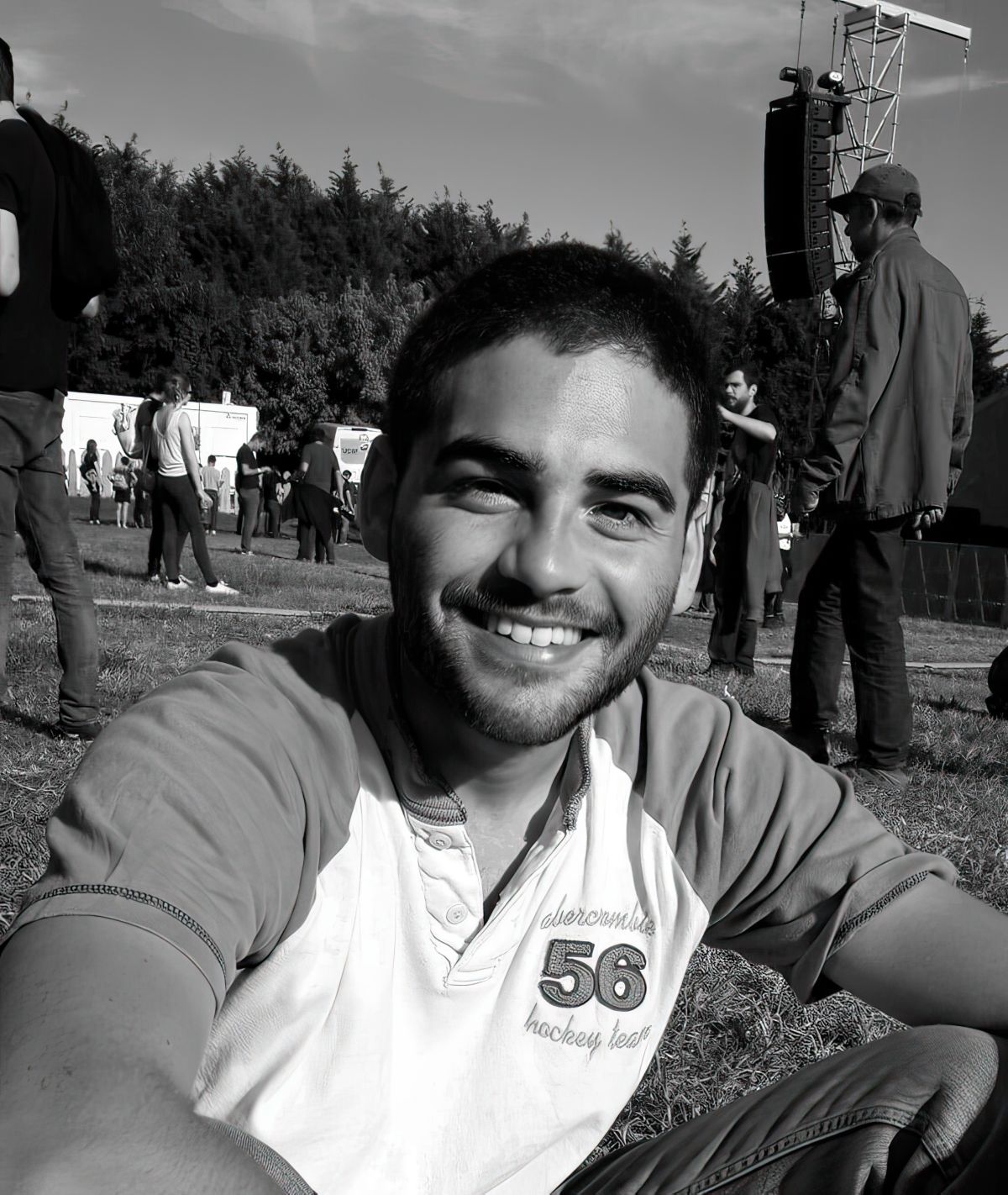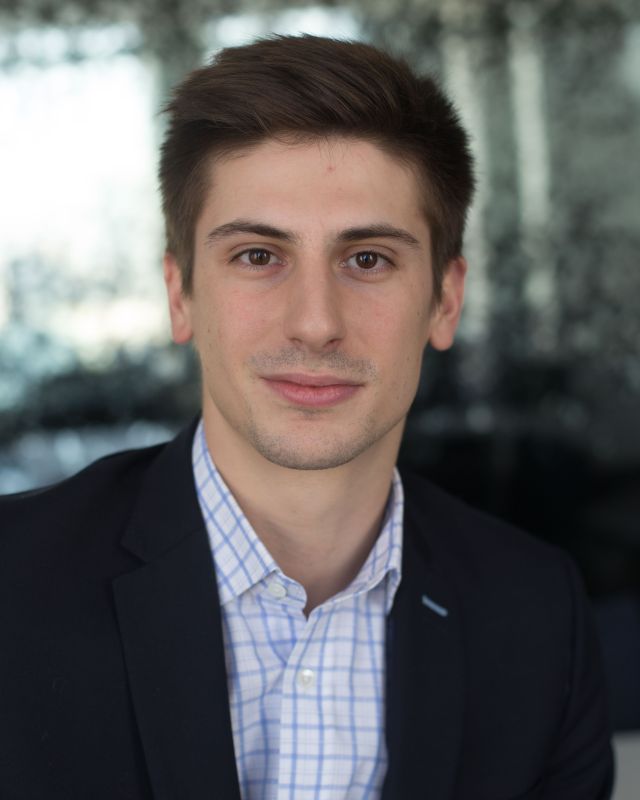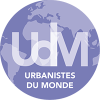Portrait

Nicolas Fayet - STU 2015 - Mobility Project Manager, Seine-Saint-Denis Department
Published on | Alumni Portraits
Portrait created by Juliette Christophe
Career
- January-July 2015: Internship at the Agency for Sustainable Mobility, Department of Roads and Transport of the city of Paris – development of the 2015-2020 bicycle plan (at the end of the plan's development and at the beginning of its implementation)
- June 2015: Graduated from STU
- 2015-2016: Master’s degree in Transport and Mobility at the School of Urban Planning in Paris and the National School of Bridges and Highways
- January-June 2016: One-year fixed-term contract (for increased activity) at the Agency for Sustainable Mobility of the city of Paris, Project Manager for participatory budget - cycling
- Preparation for the territorial attaché competition - written exams were in November 2016, oral exam at the end of April 2017
- June 2017: Admitted to the territorial attaché competition
- September 2017: Project Manager for sustainable mobility, Office of Sustainable Development, Department of Roads and Transport, Seine-Saint-Denis Department
Was the competition tough ?
I didn't plan on taking the competition as early as 2017. To be honest, it was rather friends who were also sitting it that encouraged me to register. There is no registration limit for the territorial attaché competition, so it might be worthwhile to sign up and take it without necessarily preparing 100% in order to gain some practice.
This is somewhat the mindset with which I approached the written exams. I didn't really prepare for them. I simply relied on the Administrative Law classes from STU, which I can, in hindsight, recommend to anyone else considering sitting the exam as well. There are two written tests: a dissertation and a synthesis note. For the dissertation, there is a significant element of luck regarding the topic that comes up. I was very fortunate because mine was: “Do municipalities still hold relevance?”, a question we are led to ponder in STU. The synthesis note was a more complicated exercise for me because I had never done one before. It requires reading, analysing, selecting, and synthesising information from about fifteen sources into a short and structured note. However, it demands less prior knowledge, although it facilitates analysis.
It was primarily the oral exam that I found difficult. It consists of a 20-minute interview with a panel of three people. During the interview, the panel asks as many questions as possible, which one must answer quickly before they move on to the next (I almost want to compare it to a game show atmosphere): general knowledge, situational questions, current events. For me, the oral requires much more preparation than the written exam, for which our training at Sciences Po has already prepared us better.
What added value does passing the competition bring you ?
Being a holder of the competition, and thus becoming a territorial civil servant, allows for a better outlook on a professional future in local government. My year of experience at the Paris City Hall (with a fixed-term contract with no possibility of renewal) made me realise that passing the competition was a necessary step if I wanted to continue working in local government. Positions on fixed-term contracts are still being offered, but they can be hard to find.
What do you do on a daily basis (what stimulates you or conversely bores you) ?
The essence of my work involves managing road and public space redevelopment projects in favour of active modes (especially cycling). Managing these projects entails conducting studies (for some projects I do it myself, and for others, we engage a consultancy), mobilising the relevant stakeholders for implementation (for example, the services holding the technical skills), having the direction adjudicate during monitoring committees, or even consulting with political figures and user associations.
It’s difficult to describe a workday, but concretely, it can translate into email exchanges, work meetings, drafting a note, maintaining a dashboard, informal exchange points, phone calls, or even consultation meetings.
What I particularly enjoy in my work, for example, are the little informal exchange points that advance the collective work. For instance, when I discuss with my superior about the direction of a particular project or action. One of the more relaxed aspects of my job is also the field visits by bike (this can be to inspect a recently completed development or in the context of a study). I also enjoy advocating for a project to politicians, for example. These moments are often more stimulating (but not always!) than those spent sitting at a desk.
And of course, more generally, the mission I am working on, promoting cycling (through developments, but also by working with associations), holds meaning for me, and is a source of motivation in itself.
What I like less are the weeks when one or more superiors are absent, those when there are fewer meetings or outings, and therefore fewer interactions. I dislike workdays spent predominantly in front of a computer screen; I find that one can quickly lack stimulation.
How do you see the future of your professional activity ?
When one passes the territorial attaché competition, one is placed on an eligibility list for a maximum duration of 4 years. During these 4 years, one must find a probationary internship. In fact, this involves a conventional posting in a local authority in the form of a one-year internship.
I don’t believe I want to join the territorial civil service immediately. I would like to see how things operate in the private sector first for a few years (perhaps in a consulting firm), and then I might look for a probationary internship afterwards.
Any small advice for current students ?
Nothing very specific. As I mentioned a bit about the territorial attaché competition, I would advise current students who wish to work in local government, even without being entirely certain, to register and take it to give it a try.
Guillaume Ragon - STU 2014 - Consultant at Wavestone
Published on 27 January 2018
After attending the U College of Sciences Po, you complete the STU master’s with an internship at the Evry Centre Essonne urban community. What does this…
Gisèle Moret-Deysson - STU 2009 - Associate Professor of History and Geography in Preparatory Class
Published on 03 December 2017
Meeting with Gisèle Moret-Deysson, associate professor of history-geography in preparatory classes, graduated from the STU Master in 2009. What did you do with…
 English
English  Français
Français 




